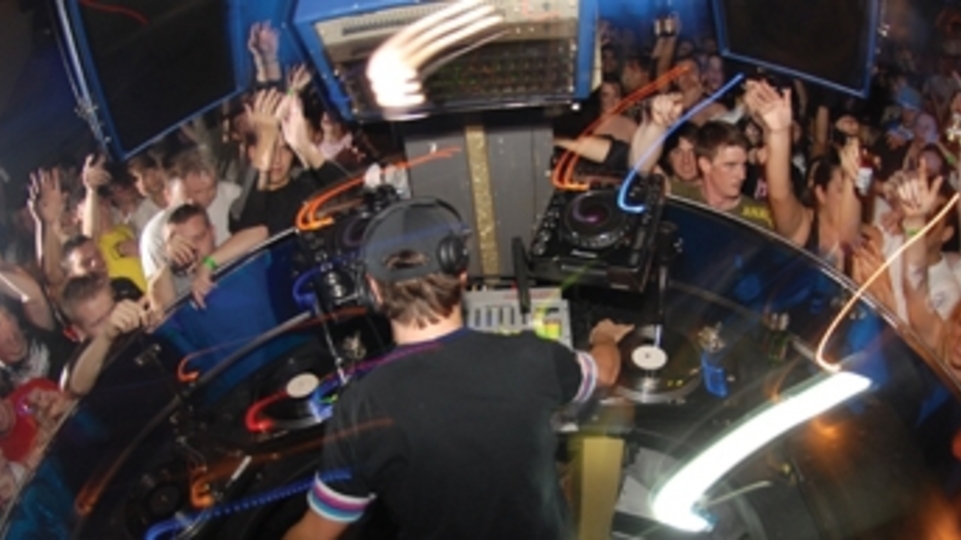
Cynics and sell-outs might tell you that idealism will never change the world - but they are wrong. If you want both the proof and a firm finger back in their face, don't look any further than The End.
Before Mr C and Layo Paskin opened the West End venue back in 1995, London was waiting to be suffocated by the corporate grip of the superclub phenomenon. Think back to an era of when supposedly 'superstar DJs' ruled (remember Jeremy Healy anyone?), when clubs were packed with handbag house and fluffy bras and club 'brands' were more interested in breaking tacky merchandise runs than experimental music.
A fast antidote to this swarming corporate rot, the effect of The End was instant. Gaining a magnetic reputation as London's underground retreat, the basement venue gave DJs like Richie Hawtin, Jeff Mills and Laurent Garnier a London platform at a time when quality techno simply wasn't getting a look in.
As burgeoning UK drum & bass emerged as the most innovative sound of their generation, The End pulled them into one of the finest underground clubs in London without putting limits on their raw urban energy. In short, The End represented a restoration of acid house's musical integrity but with an ambition to pull the experience into the awaiting millennium.
"We felt clubland lacked a bit of balls and experimentation," remembers Layo, who met Mr C at the latter's infamous Clink Street warehouse parties back in 1988. "Richard [Mr C] and I felt like it had all become very commercialised. Coming from acid house backgrounds, we couldn't really understand how it had got like that and wanted to rebel and brings things back underground with experimental music."
Across its 14-year existence and before closing its doors for the last time in January, The End not only celebrated every key DJ of its time but captured many at their very peak. Stuart 'Les Rythmes Digitales' Price, d&b legend Roni Size, big beat icon Fatboy Slim and Erol Alkan all held their most defining residencies here, whilst more recent years have seen Marky & Friends, Ben Watt's Buzzin' Fly, Sven Väth's Cocoon and James Holden's Border Community all become essential dates on the London clubbing diary.
From FWD's dutty dubstep riddims to the minimal tribal rhythms of Circo Loco, The End's embrace of the specialist cutting-edge kept it vital and vibrant right up until its closing weekend.
But for all the magical promotions that the venue helped nurture, there was a sense that the true energy of The End lay simply in its layout itself. Designed for the clubber, The End placed the DJ booth near the heart of its intimate, low-sunk main room. At first disorientating, the booth's position broke from accepted traditions but created a consuming intimacy that remains unmatched by any venue in the capital.
"That DJ booth really left you feeling like you were sharing your music rather than simply playing it," believes Steve Lawler, who ran his monthly Harlem Nights party at The End for seven years until the close.
"With a club that size you could easily fill it with 100% music lovers, no stragglers. It was the perfect size room to get intimate with your audience.
"But most importantly, it was a club run by a family of people driven by the same ideals, not an office," he confirms, "and you could feel it."
Yep, The End was a true family business. It was Layo's architect father Douglas who first brought the crumbling basement to his attention and later designed the plans for the club. When the venue fell into debt due to Layo and Mr C's initial excess of ideals over efficiency, Layo's sister Zoe stepped in, steadied the ship and turned the duo's abundance of creative idealism into profitable business dynamics. Crucially, The End's vital core values were galvanised rather than sacrificed in this process.
"I think the one thing we set out to do was to make a club that was for the clubber," concludes Layo. "We were the only club in London to have a free water fountain but to us it made sense. We wanted to put the clubber first and give them the best of everything we could - talent, music, comfort, care."
Mission accomplished, then, and whilst The End's loss might leave a gaping hole for many London clubbers, the dogged beliefs of those behind it have changed the course of clubbing in the capital forever more. Goodbye baby.